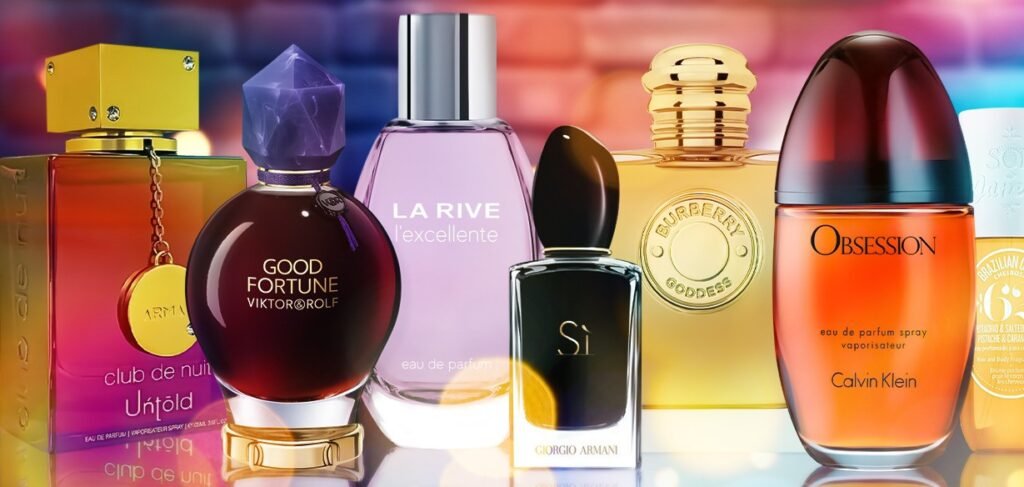Perfume is more than just a pleasant scent — it’s an expression of personality, mood, and style. From ancient civilizations to the modern fashion industry, perfumes have played a powerful role in self-adornment, seduction, and storytelling. Whether subtle and floral or bold and spicy, a good perfume leaves a lasting impression, enhancing both confidence and presence.
A Brief History of Perfume
The art of perfume-making dates back thousands of years. The word “perfume” comes from the Latin phrase luxury rose scent perfume women meaning “through smoke.” Ancient Egyptians were among the first to use perfumes in religious rituals and daily life. Fragrance was associated with the divine and the elite, with oils and balms crafted from flowers, herbs, and spices like myrrh, frankincense, and rose.
As perfume-making spread to Greece and Rome, it became more refined. In the Islamic Golden Age, chemists advanced the distillation process, revolutionizing the production of essential oils. By the Renaissance, European royalty made perfume a symbol of wealth and sophistication. Today, perfume is a universal luxury available to people from all walks of life.
The Fragrance Pyramid: Understanding Perfume Notes
Every perfume is composed of three layers of scent known as the fragrance pyramid:
- Top Notes: These are the first impressions, often light and refreshing, like citrus, mint, or fruity accords. They evaporate quickly, usually within 15 minutes.
- Heart (Middle) Notes: These form the core of the fragrance and last several hours. Floral, spicy, and herbal notes are common here, providing depth and personality.
- Base Notes: These are the lasting scents that linger on the skin. They include rich, deep elements like musk, amber, vanilla, or sandalwood.
Understanding these layers helps consumers choose perfumes that suit their preferences and perform well throughout the day.
Categories of Perfume
Perfumes are classified based on their scent families. Some of the most popular categories include:
- Floral: Dominated by flower scents like rose, jasmine, and lily. Feminine and romantic.
- Woody: Earthy and warm, with notes like cedarwood, sandalwood, and vetiver.
- Oriental: Rich, exotic fragrances featuring spices, resins, and amber.
- Fresh: Clean and crisp, often with citrus, green, or aquatic notes.
- Fruity: Sweet and juicy, with scents like berries, apples, or tropical fruits.
These categories allow people to explore fragrances that align with their mood, occasion, or season.
Choosing the Right Perfume
Selecting the perfect perfume is a personal experience. What smells great on one person may not work as well on another due to differences in body chemistry, lifestyle, and preferences.
Here are a few tips for choosing the right fragrance:
- Test Before Buying: Always try a sample on your skin, not just on a paper strip. Let it sit for a few hours to experience the full evolution of the scent.
- Consider the Occasion: Light, fresh scents are ideal for daytime or office use, while deeper, muskier perfumes suit evenings and special occasions.
- Seasonal Scents: Opt for floral and citrus fragrances in the spring and summer, while woodier, spicier options are perfect for fall and winter.
- Stick to Your Personality: Perfume should reflect who you are — playful, elegant, mysterious, or bold.
Perfume and Confidence
Perfume has a psychological effect that can uplift your mood, enhance your confidence, and leave a memorable trail. It can become a signature that people associate with you, making it a subtle but powerful form of communication.
In professional settings, a clean, balanced scent can create a positive impression. On dates or social events, a romantic or alluring perfume can add charm and intrigue. Many people even report that wearing their favorite perfume makes them feel instantly more put-together and motivated.
The Future of Perfume
The perfume industry continues to evolve with trends toward sustainability, cruelty-free testing, and personalization. Niche perfume houses are gaining popularity by offering unique, artisanal scents that stand out from mainstream products. Meanwhile, advancements in biotechnology are enabling the creation of eco-friendly ingredients without compromising quality or luxury.
Some brands are now offering AI-powered perfume matching tools, allowing customers to find their perfect scent based on preferences and personality traits. The future of fragrance lies in individuality and conscious craftsmanship.
Conclusion
Perfume is an invisible accessory that speaks volumes. It blends history, art, chemistry, and emotion into a single bottle. Whether you’re drawn to floral elegance, spicy mystery, or fresh simplicity, the right perfume can define your style and elevate your everyday experience. So next time you choose a fragrance, remember — you’re not just picking a scent, you’re selecting a story to wear.
